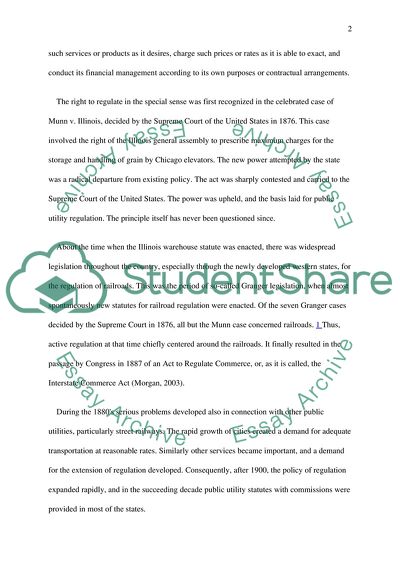Cite this document
(“Regultion of public utilities Essay Example | Topics and Well Written Essays - 3250 words”, n.d.)
Regultion of public utilities Essay Example | Topics and Well Written Essays - 3250 words. Retrieved from https://studentshare.org/miscellaneous/1535518-regultion-of-public-utilities
Regultion of public utilities Essay Example | Topics and Well Written Essays - 3250 words. Retrieved from https://studentshare.org/miscellaneous/1535518-regultion-of-public-utilities
(Regultion of Public Utilities Essay Example | Topics and Well Written Essays - 3250 Words)
Regultion of Public Utilities Essay Example | Topics and Well Written Essays - 3250 Words. https://studentshare.org/miscellaneous/1535518-regultion-of-public-utilities.
Regultion of Public Utilities Essay Example | Topics and Well Written Essays - 3250 Words. https://studentshare.org/miscellaneous/1535518-regultion-of-public-utilities.
“Regultion of Public Utilities Essay Example | Topics and Well Written Essays - 3250 Words”, n.d. https://studentshare.org/miscellaneous/1535518-regultion-of-public-utilities.


